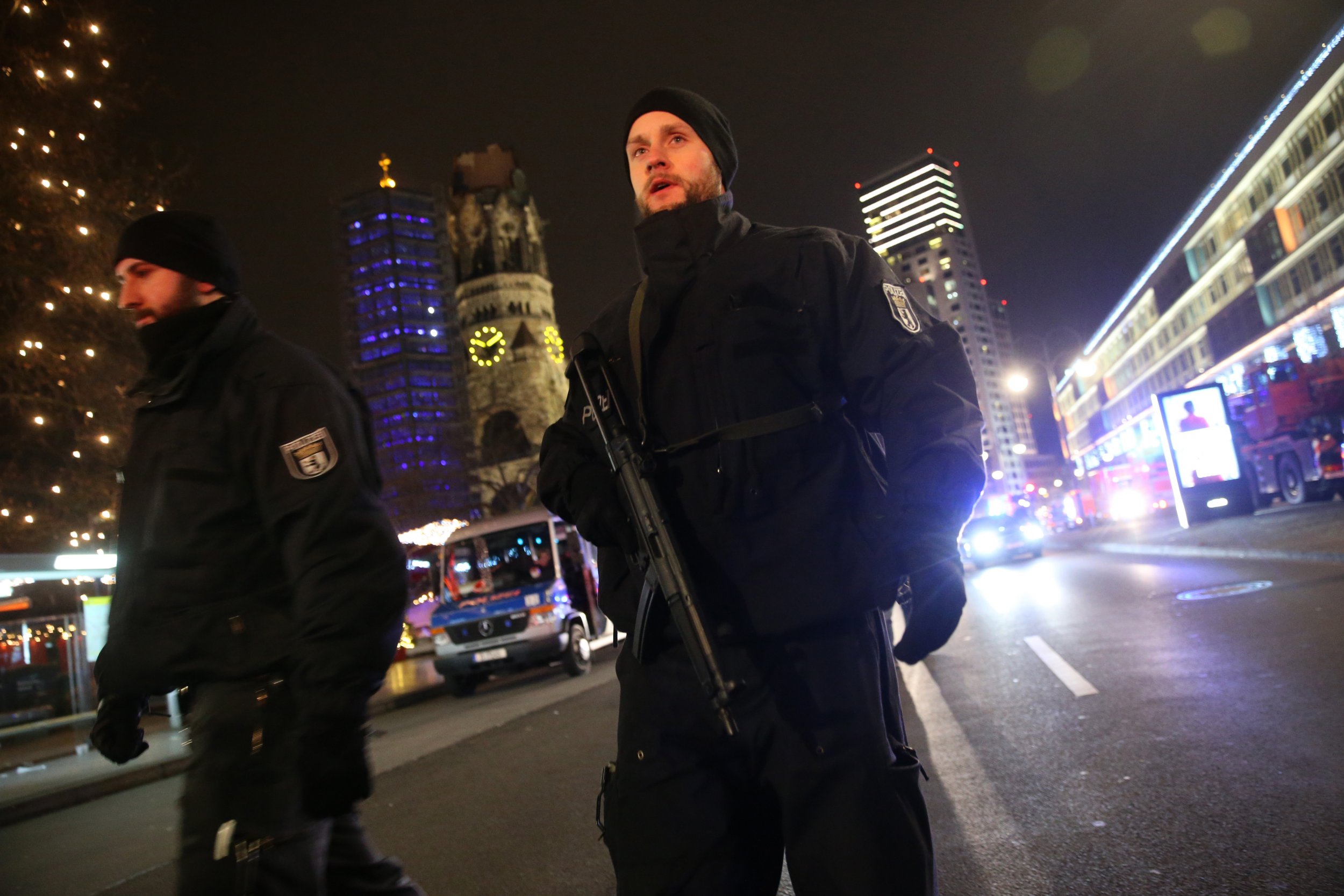
The Islamic State militant group (ISIS) directed two remote attacks on German soil last year.
Before they launched their assaults—a suicide bombing in Ansbach and an ax assault in the Bavarian city of Wurzburg —the perpetrators were in touch with the group's fighters in Iraq and Syria.
Now a reporter from Germany has uncovered how ISIS directs those who reach out to the group with a desire to attack, detailing how the ISIS's influence in Europe goes much farther than mere inspiration.
Björn Stritzel, a reporter at German tabloid Bild, spent months undercover pretending to be a potential attacker from Europe, in coordination with German security services. He gained access to the administrators of top ISIS channels on the encrypted messaging app Telegram, including prominent propaganda channel Nashir. His undercover work is part of a new series for the newspaper.
The first installment reveals how ISIS officials reacted to being approached by a supposed European jihadi who was motivated to act in the group's name.
Stritzel asked how he could send a video to Amaq, the militant group's news agency, where pledges of allegiance are published after assaults in ISIS's name. The group's official asked the reporter to move to another encrypted messaging app, Wickr, which is becoming a preferred method of communication for the ISIS as messages can be set to self-delete at a specific time after sending.
In Wikr, Stritzel was introduced to two ISIS instructors.
"If you are planning on doing something, I suggest communicating with me here and not using Telegram," one of them said, also instructing him to "destroy your phone's SIM card" for security purposes.
In follow-up messages, the instructor began to offer advice. "Please be very careful, take precautions and be quick to operate," the instructor said. "The more time you take, the more chances there are for failure. May Allah guide your steps."
The exchange shows the level of input by the group, and its eagerness for more attacks as it continues to lose territory in Iraq and Syria. They want video footage of the individual's pledge for the group's propaganda purposes, and they urge the would-be attacker to act with speed.
The handler continues, "Don't plan too much. I mean, once the basic idea is made, the important thing is that you put your trust in Allah. Your video, if sent to me, will reach exactly where it needs to go. If it is already ready, send it now so that you don't have to worry about that later."
The Ansbach and Wurzburg attackers, Syrian refugee Mohammad Daleel and Afghan refugee Riaz Khan, both filmed pledges of allegiance to the jihadi group. The group promptly released the videos on its news agency Amaq, after the perpetrators had carried out their attacks and been killed, indicating that they were in contact with the group's media operation.
German authorities later discovered that ISIS militants in the Middle East had been directing both assailants on encrypted messaging apps. In Ansbach, the Syrian attacker's conversation with his ISIS handler only ended shortly before he detonated his explosive device.
The exchanges and the details of the attacks in Germany are what European security now regard as one of their greatest concerns: the activation of homegrown jihadis, or those settled in EU countries, who did not travel to Syria or Iraq to fight for ISIS but believe in its ideology.
On top of these, EU security services have expressed fears that—as the group loses territory in the Middle East—hundreds of foreign fighters will return home, where they could carry out attacks after being exposed to the jihadi group and its brutal tactics.
Last week, a list of 173 potential trained suicide bombers circulated by the global crime agency Interpol in May surfaced. It said the suspects may have received training to carry out suicide bomb attacks in Europe as the group's caliphate diminishes. The list is based on information gathered by U.S. intelligence in ISIS-held territory.
It said the batch of fighters are persons who "may have been trained to build and position improvised explosive devices in order to cause serious deaths and injuries. It is believed that they can travel internationally, to participate in terrorist activities."
Uncommon Knowledge
Newsweek is committed to challenging conventional wisdom and finding connections in the search for common ground.
Newsweek is committed to challenging conventional wisdom and finding connections in the search for common ground.
About the writer
Jack is International Security and Terrorism Correspondent for Newsweek.
Email: j.moore@newsweek.com
Encrypted email: jfxm@protonmail.com
Available on Whatsapp, Signal, Wickr, Telegram, Viber.
Twitter: @JFXM
Instagram: Read more
To read how Newsweek uses AI as a newsroom tool, Click here.








